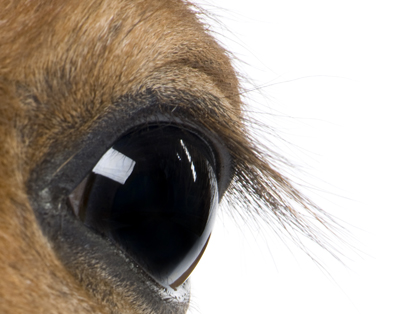Behavioral and Physiological Responses of Therapy Horses to Mentally Traumatized Humans
Research conducted at Department of Animal Biosciences, University of Guelph, Guelph, Canada was recently published in Applied Animal Behavior Science. The study ‘Behavioral and physiological responses of therapy horses to mentally traumatized humans’ examined the effects of equine assisted therapy (EAT) on the horse. The principal investigator was Katrina Merkies, PhD and the project was funded by the Horses and Humans Research Foundation.
Subjects clinically diagnosed and under care of a psychotherapist for Post-Traumatic Stress Disorder (PTSD) were matched physically to four neurotypical control subjects and individually participated in sessions with each of 17 therapy horses loose in a round pen. A professional acting coach instructed the control humans in replicating the physical movements of their paired PTSD individual. Both horses and humans were equipped with a heart rate (HR) monitor recording HR every 5 seconds. Saliva samples were collected from each horse 30 min before and 30 min after each trial to analyze cortisol concentrations.
Each trial consisted of 5 minutes of baseline observation of the horse alone in the round pen after which the human entered the round pen for 2 minutes, followed by an additional 5 minutes of the horse alone. Beavioural observations indicative of stress in the horse (gait, head height, ear orientation, body orientation, distance from the human, latency of approach to the human, vocalizations, and chewing) were retrospectively collected from video recordings of each trial.
Results indicate that horses respond more to physical cues from the human than emotional cues. This knowledge is important in tailoring therapy programs and justifying horse responses when interacting with a patient in a therapy setting.
The project also indicated: 1) Therapy horses do not differentiate between humans with PTSD and those without. 2) Therapy horses display more stress behaviors when they are alone in a round pen. 3) Therapy horses are more attentive to humans who are experienced around horses. 4) Therapy horses are calmer with humans who are inexperienced around horses.
Dr. Merkies commented that “There is a critical need to understand the mechanisms behind horse-human interactions in order to understand the motivations of the horse – are they engaged in a mutually beneficial or altruistic interaction, or simply responding to human physical characteristics. This is important in light of best practices attuned to equine welfare – we need to ensure that we are employing horses responsibly, not only reducing or eliminating poor welfare but also providing opportunity for positive welfare.”
Mission: Through investment in rigorous research, Horses and Humans Research Foundation will serve as a catalyst to advance knowledge of horses and their potential to impact the health and wellness of people.
Horses and Humans Research Foundation (HHRF) is dedicated to funding research to investigate the equine-assisted activities and therapies field. Since its founding, HHRF has awarded over $460,000 in professional research efforts led by eleven research teams in the United States, Canada and Germany. HHRF is a non-endowed foundation dependent solely on donations. To make a donation and/or learn more about this and other Horses and Humans Research Foundation projects visit http://www.HorsesandHumans.org.











